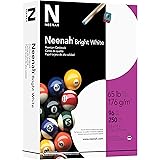Here are some steps and tips to help you on your journey to becoming a proficient angler:
1. Learn the Basics
- Understand the Equipment: Familiarize yourself with the different types of rods, reels, line, and tackle. Know when and how to use each.
- Knot Tying: Learn to tie essential fishing knots like the Improved Clinch Knot, Palomar Knot, and Loop Knots.
2. Study Your Target
- Species Knowledge: Research the habits, preferred habitat, and diet of the fish you’re targeting.
- Seasonal Patterns: Fish behavior changes with the seasons. Understand these patterns to find fish more effectively.
3. Techniques and Strategies
- Casting Techniques: Practice your casting. Different situations require different casts.
- Lure and Bait Selection: Choose your bait or lure based on the fish species, water conditions, and what fish are eating.
4. Water Reading Skills
- Identify Fish Habitats: Learn to read the water and recognize potential fish habitats, like underwater structures, currents, and shaded areas.
- Weather and Time: Fish activity can depend on the time of day and weather conditions. Early morning and late afternoon are often productive times.
5. Conservation and Ethics
- Catch and Release: Practice catch and release to conserve fish populations. Learn the proper techniques to ensure fish survival.
- Respect the Environment: Keep the waters clean, respect local regulations, and practice ethical fishing.
6. Continuous Learning and Practice
- Experiment: Don’t be afraid to try new locations, techniques, and tackle.
- Learn from Others: Join fishing communities, forums, or local clubs. Experienced anglers can provide invaluable advice.
- Patience and Persistence: Fishing can be a game of waiting. Enjoy the process, and don’t get discouraged by unsuccessful outings.
7. Safety
- Always prioritize safety by informing someone of your fishing location and expected return time, wearing a life jacket when on the water, and being aware of weather conditions.
8. Gear Up
- Invest in quality gear suited to your fishing style and target species, but remember that expensive equipment isn’t always necessary to be successful.
9. Record Keeping
- Keep a fishing journal. Note the conditions, locations, baits, and techniques that were successful or not. This can be a valuable tool for learning and improving.
10. Enjoy the Experience
- Fishing is not just about the catch; it’s about enjoying nature, relaxing, and spending quality time with friends and family.
By following these steps and continuously seeking knowledge, you’ll enhance your skills and enjoyment of fishing, contributing to a lifelong rewarding hobby.








